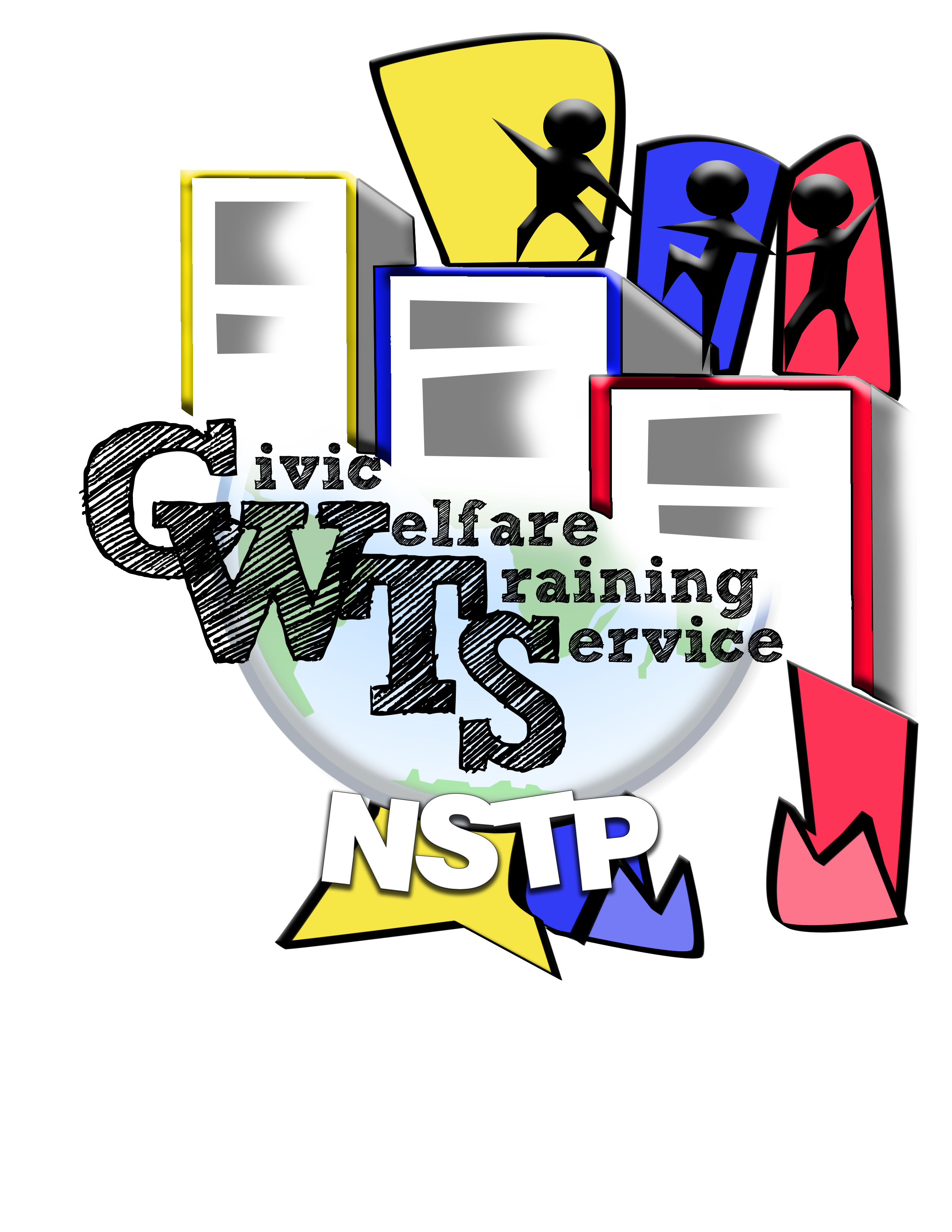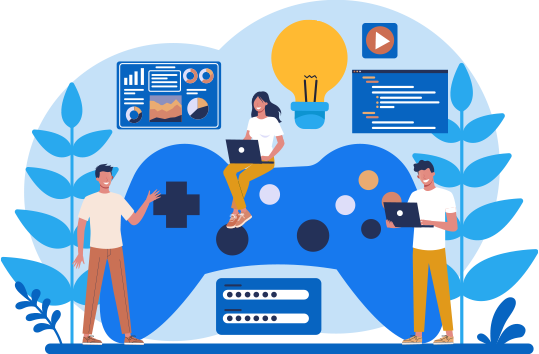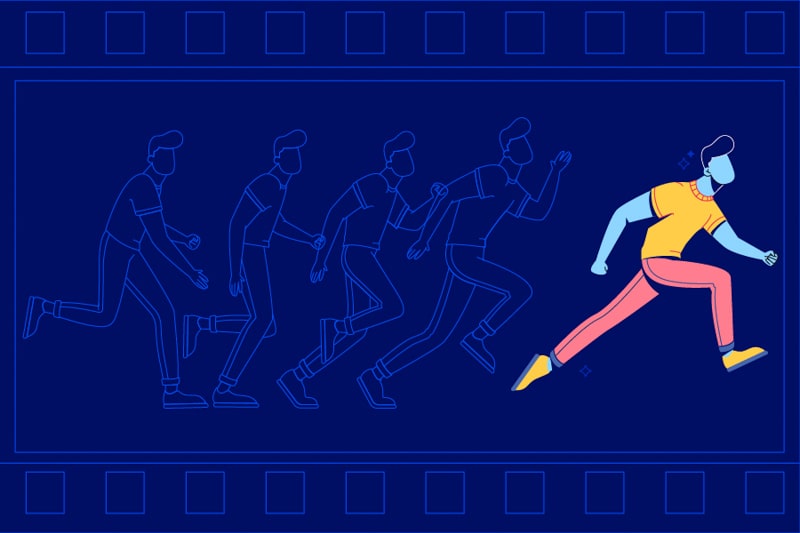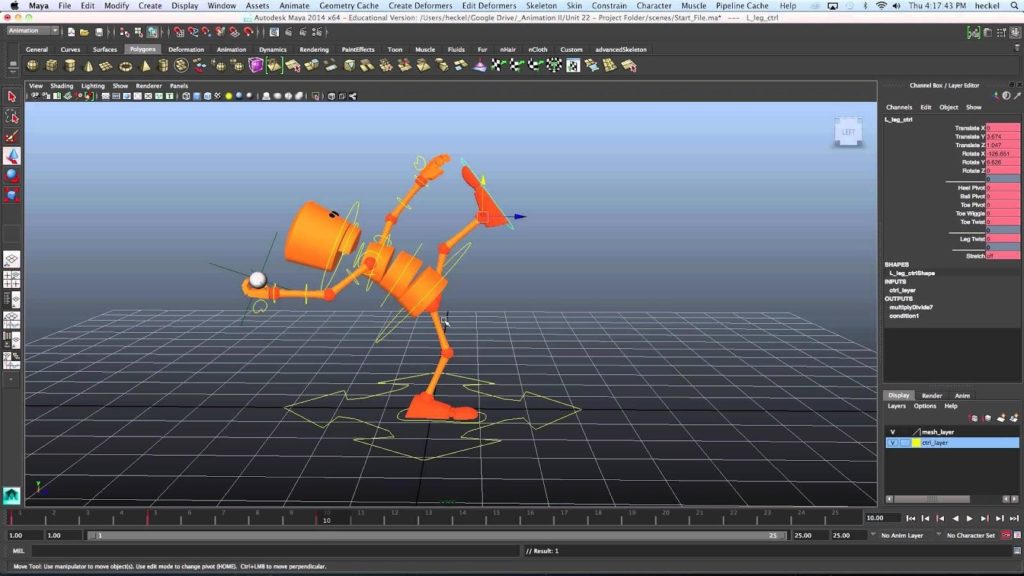The Civic Welfare Training Service (CWTS) 2 is the second and last phase of the CWTS Program. While CWTS 1 provides the basic orientation for community service and involvement, the CWTS 2 focuses on concrete project implementation activities with partner communities in the areas of health, education, environment, safety, entrepreneurship, recreation and moral of the citizenry and other social welfare service. It is designed to immerse students in activities that will arm them the capability to contribute in the upliftment of the general welfare and the quality of life of the community and the enhancement of its facilities especially those that are devoted to improving the health, environment, entrepreneurship, safety, recreation and morale of the citizen.

- Teacher: Princess Jenan Kasuyo
Intended to develop foundational skills for animation and other multimedia applications, this course deals with the concepts and practices necessary to visually articulate three-dimensional life forms. Topics include the human anatomy, contour lines, value, gesture, proportion, figure-ground relationship and composition.

- Teacher: Princess Jenan Kasuyo
This course focuses on software quality engineering and software cost estimation. This relates to testing, verification, and validation in order to find defects and determine the quality level of a software.

- Teacher: Princess Jenan Kasuyo
Planning, design, and production of interactive offline and online games preferably for social development. It also includes learning theories and principle. Students are equipped with skills in game design, storyboarding, animation, scripting, etc.

- Teacher: Princess Jenan Kasuyo
This course provides students with an appreciation for the art of animation by surveying its history, types, production processes, and current industry trends. It aims to equip students with the skill of visual storytelling through the interpretation of narrative and movement via traditional and digital hand-drawn animation techniques.

- Teacher: Joehaima Jul
- Teacher: Princess Jenan Kasuyo
This course is designed to covers the introduction of Operating System, its concept, functions and major components of the OS. The course also includes an overview on the core structure and design principles of Operating system. Students will also learn how to interposes communication and basic concepts of virtualization. This course will Also covers different Operating System in the market, its functions and distribution in the field of Information Technology.

- Teacher: Joehaima Jul
- Teacher: Princess Jenan Kasuyo
This course aims to provide students an overview of the fundamental theories and concepts of human-computer interaction (HCI). Students will gain theoretical knowledge of and practical experience in the fundamental aspects of human perception, cognition, and learning as relates to the design, implementation, and evaluation of various interactive systems and user interfaces based on the capabilities of computer technology and the current human–computer interaction principles.

- Teacher: Joehaima Jul
- Teacher: Princess Jenan Kasuyo
This course reviews the principles of classic animation and 3D modeling and applies them to animating virtual objects and environments in the 3D medium. It aims to equip students with the skill of visual storytelling through the interpretation of narrative and movement via 3D animation techniques. Topics include basic rigging, key framing, timing adjustments, rendering.

- Teacher: Princess Jenan Kasuyo
This course is focused on the application of multimedia publishing software. Principles of layout fonts or type, color, and other graphic design elements are applied in the creation of effective printed and web communication collaterals, such as newsletters, annual reports, brochures, web sites, promotional materials, etc.

- Teacher: Joehaima Jul
- Teacher: Princess Jenan Kasuyo